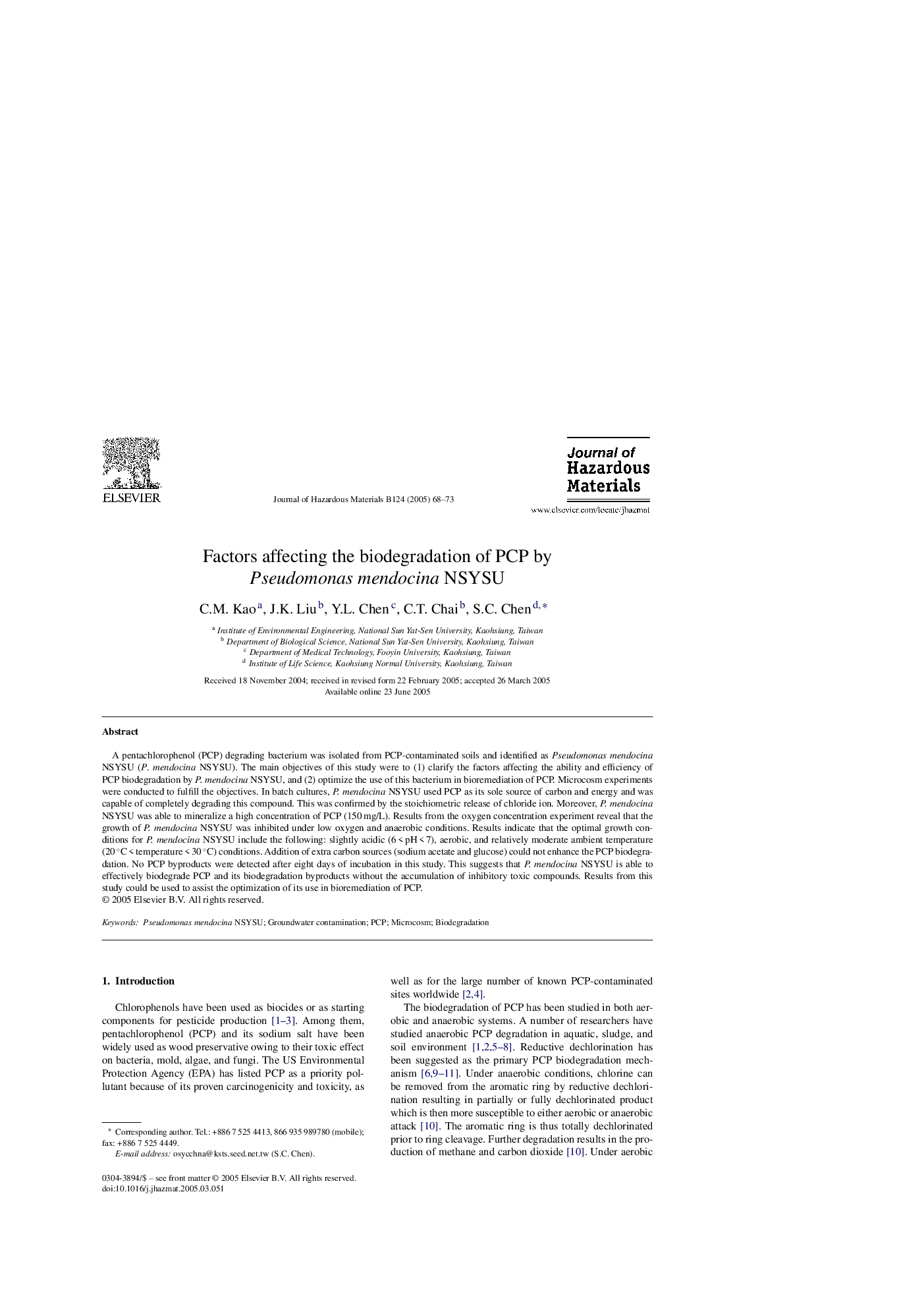| Article ID | Journal | Published Year | Pages | File Type |
|---|---|---|---|---|
| 9674161 | Journal of Hazardous Materials | 2005 | 6 Pages |
Abstract
A pentachlorophenol (PCP) degrading bacterium was isolated from PCP-contaminated soils and identified as Pseudomonas mendocina NSYSU (P. mendocina NSYSU). The main objectives of this study were to (1) clarify the factors affecting the ability and efficiency of PCP biodegradation by P. mendocina NSYSU, and (2) optimize the use of this bacterium in bioremediation of PCP. Microcosm experiments were conducted to fulfill the objectives. In batch cultures, P. mendocina NSYSU used PCP as its sole source of carbon and energy and was capable of completely degrading this compound. This was confirmed by the stoichiometric release of chloride ion. Moreover, P. mendocina NSYSU was able to mineralize a high concentration of PCP (150 mg/L). Results from the oxygen concentration experiment reveal that the growth of P. mendocina NSYSU was inhibited under low oxygen and anaerobic conditions. Results indicate that the optimal growth conditions for P. mendocina NSYSU include the following: slightly acidic (6 < pH < 7), aerobic, and relatively moderate ambient temperature (20 °C < temperature < 30 °C) conditions. Addition of extra carbon sources (sodium acetate and glucose) could not enhance the PCP biodegradation. No PCP byproducts were detected after eight days of incubation in this study. This suggests that P. mendocina NSYSU is able to effectively biodegrade PCP and its biodegradation byproducts without the accumulation of inhibitory toxic compounds. Results from this study could be used to assist the optimization of its use in bioremediation of PCP.
Related Topics
Physical Sciences and Engineering
Chemical Engineering
Chemical Health and Safety
Authors
C.M. Kao, J.K. Liu, Y.L. Chen, C.T. Chai, S.C. Chen,
